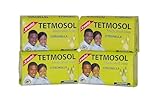Cleaning is an integral chore around our homes. This includes bathing, doing laundry, or mopping the house, among others. To do this, we need cleaning agents such as non-detergent soap. Non-detergent soap is different from detergents when evaluated on several factors.
In this article, you will learn the soaps’ brief history, the differences between soaps and detergents, your best options, and lots and lots more.
A non-detergent soap is a cleaning agent made by reacting alkalis with natural fats; vegetable fats, oils, or animal fats. These alkalis basically, lyes(sodium hydroxide), are reacted with fats through saponification resulting in glycerol and fatty acids, also known as “soap.”
A Brief History of Non-detergent Soap
Soap production can be traced back in history to around 2800 BC in the Babylonian Kingdom, where historians stumbled upon evidence of its use in ancient Roman literature.
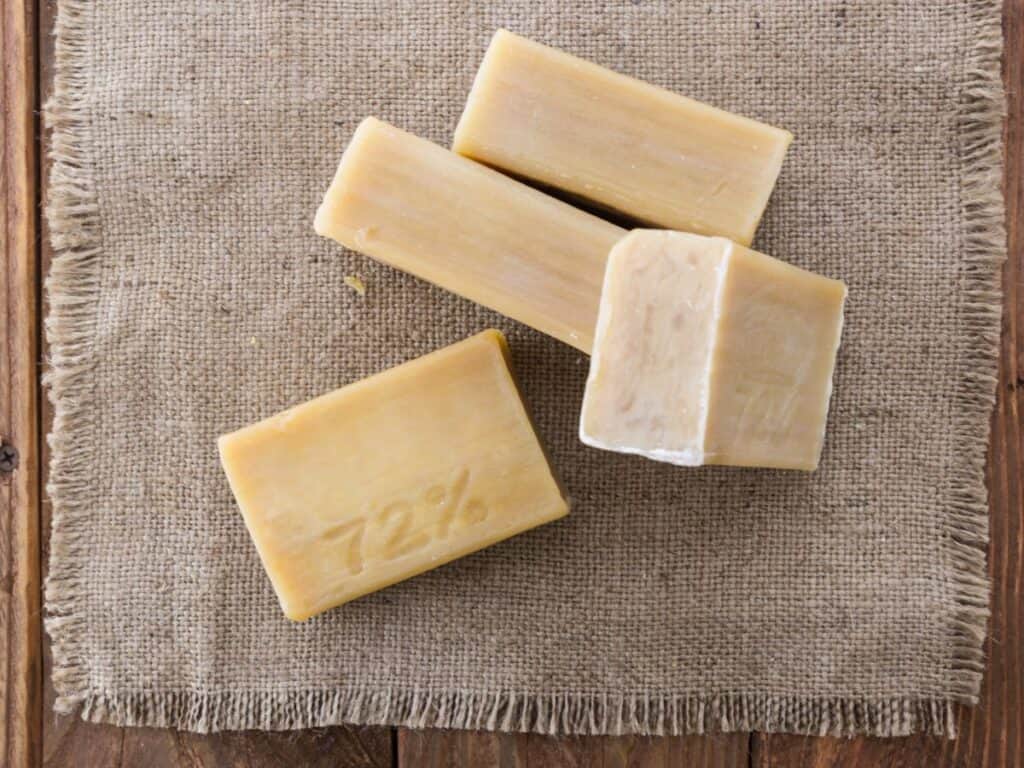
Later, evidence of soap usage is found in medieval Europe, believed to have been a luxury product among the privileged of society.
With time the use of soap spread fast to the US, courtesy of the discovery of the link between some diseases and poor personal hygiene. Since then, the manufacture and usage of soap have spread worldwide to become the household cleaning staple it is today.
What Are the Different Types of Non-detergent Soaps?
Soaps can be classified based on ingredients and the manufacturing process. Below are some of the common types of soaps and their notable recommendations.
Toilet Soaps
Toilet soaps are soaps used for personal hygiene. Further, this class of soaps can be broken into different sub-classes based on Total Fat Matter(TFM), which refers to the cleaning material content in a given soap. In general, soaps with a higher percentage of TFM are of higher quality.
Here are classifications of toilet soaps
Grade 1
These are soaps whose TFM level is a minimum of 76%, with some even having upwards of 80%. These soaps are considered of higher quality in comparison to other grades. They can be homogenized, milled, colored, or transparent. But overall, they have a higher lathering ability, are more moisturizing, and are milder to the skin.
Grade 2
Soaps at this level have their TFM at 70%. They are well-saponified soaps of great texture and are mild. This is still superior soap in terms of lathering and cleaning power, albeit at a lower level than grade1.
Grade 3
The TFM level for this class of soap is 60%. This is the lowest class in terms of its lathering and cleaning power. They are still considered good, but their lathering cleaning power is below average.
Laundry Soaps
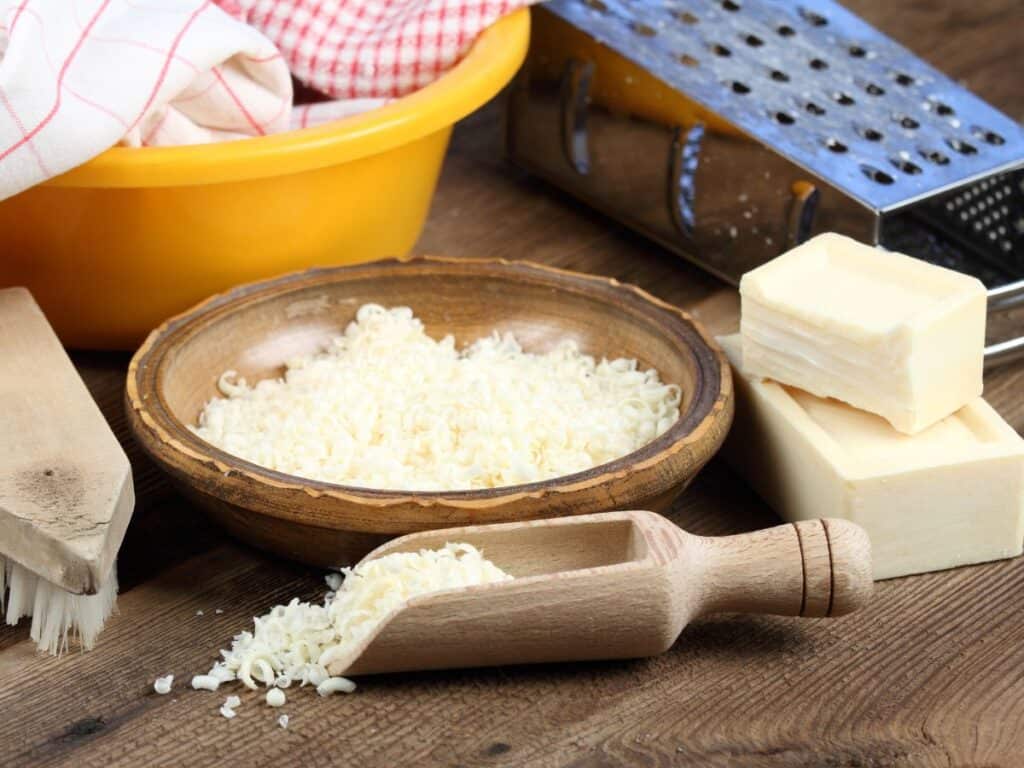
Laundry soaps are non-detergent soaps used in cleaning garments. They are manufactured by using natural plants, animal fats, and oils. In their original form, laundry soaps contain few surfactants and synthetic additives, making their cleaning power low.
Having said that, all laundry soaps are not made equal. Some soaps are formulated purely with safe use organic agents, making them some of the few powerful non-detergent soaps out there.
Beauty Soaps
- GENTLE ON SENSITIVE SKIN: Nourish your skin with Dove Sensitive Skin Beauty Bar. With its fragrance free and hypoallergenic formula, it gently cleanses for softer skin than ordinary bar soap
- DERMATOLOGIST RECOMMENDED: Formulated with ultra-mild cleansers and ¼ moisturizing cream, Dove moisturizing Beauty Bar leaves skin instantly soft and smooth with lasting nourishment
- MILD AND MOISTURIZING: Help maintain your skin’s natural moisture barrier and hydration with this Beauty Bar for women, ideal to use as a gentle face cleanser and body soap for sensitive skin
As the name suggests, beauty soaps are designed to cleanse and smoothen the skin. Modern beauty soaps are designed with different ingredients to increase their cleaning power.
For example, contains additives such as shea butter, chamomile, and coconut oil, among other ingredients.
These soaps are for moisturizing, removing shed-off skin, and protecting the skin from drying. When it comes to their presentation, they can be in the form of bars, gels, liquid washes, or different colors and scents.
Novelty Soaps
- Hand milled specialty soap: Luxurious vegetable soaps enriched with shea butter use Natural ingredients to create the most captivating smells. Perfect for sensitive skin and oily skin!
- Long lasting fragrance: Each Scent is specially crafted to ensure a long lasting aroma, leaving your hands or body smelling great after every wash
- Decorative: Add Luxury to any kitchen or bathroom space with these chic soaps. Perfect for the counter in a guest bathroom
Besides their usual cleaning functions, novelty soaps are mainly for aesthetic appeal. Often they are handcrafted to form rare forms such as cars, birds, ducks, or fish.
And they are specifically tailor-made for a specific niche market looking for these kinds of products. That explains why they are more expensive than ordinary soaps.
Plus, they are especially appealing to children to encourage bathing.
Medicated Soaps
Medicated soaps are specifically formulated with other additives for preventing or treating skin problems. These include fungal and bacterial infections such as acne, blackheads, and rashes. To fight these problems, the soaps contain additives such as triclosan, triclocarban, and tetrasodium. Others are organic antifungal extracts; lemongrass, citronella, eucalyptus oil, and peppermint. All this is besides their skin cleaning power, moisturizing and soothing effects.
Glycerin Soaps
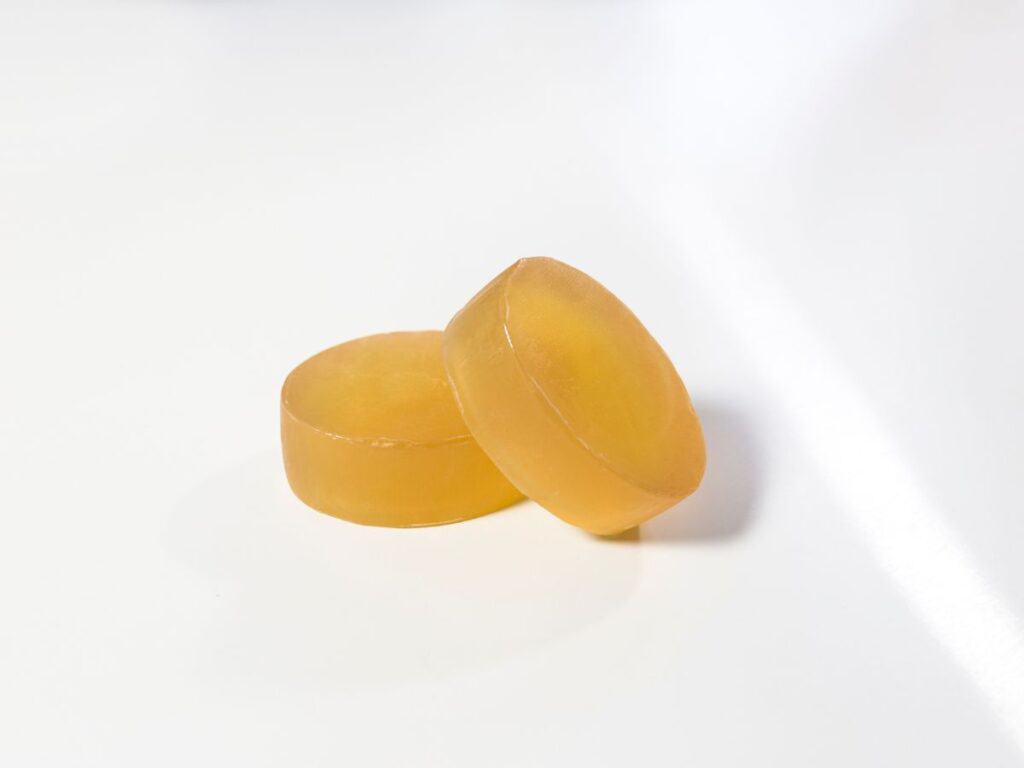
Glycerin soaps are excellent skin-nourishing soaps due to their humectant properties, making them capable of absorbing moisture and keeping the skin hydrated all the time. Moreover, most of the ingredients of glycerin soaps are organic.
That is why they’re considered safe for personal use and for the environment as well. Due to these properties, glycerin is recommended for people with skin drying issues such as eczema or psoriasis.
Transparent Soaps
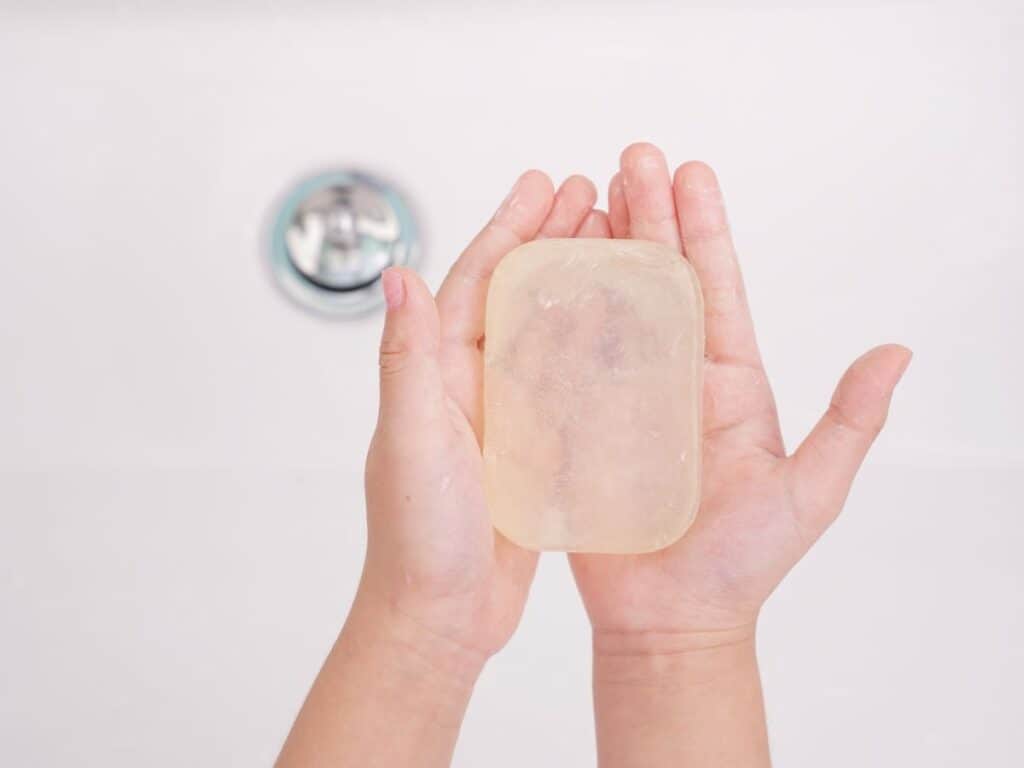
Transparent soaps are so-called due to their see-through appearance. They result from a hot soap-making process that involves using sugar, water, and glycerin to dissolve soap resulting in a clear solid.
Generally, transparent soaps are considered milder and more nourishing to the skin due to other additives such as jojoba and shea butter.
Milk Soaps
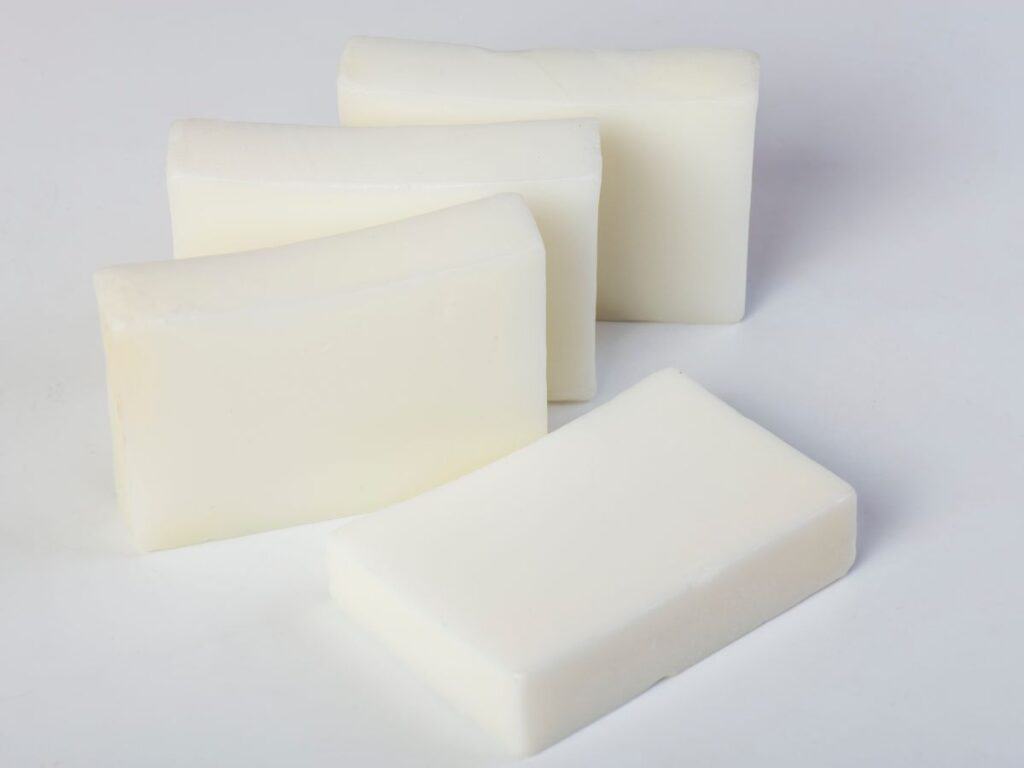
Milk soaps are so named for the use of milk as one of the ingredients in their manufacture. During the cold saponification process, milk is used to replace the entire or part of water requirements.
Mostly, goat milk is the preferred type, although others such as almonds, soymilk, and milk powders can also be used. Milk soaps are high-quality soaps that lather easily and have a skin-nourishing feel. For their mildness and gentleness, they are highly recommended for use on infant skins.
Flavored Soaps
- Each bar is full sized, at 5oz each. It is perfect as hand or body soap.
- These bars are made with the cold process method. This process retains the end product’s natural glycerin, which is moisturizing to the skin. Loaves are made, hand cut and packaged right here in the USA.
- They may be made in an old fashion way, but the scents are anything but stuffy! The fragrances are Cafe Mocha, Cinnamon Latte, Freshly Brewed Coffee and Fudgy Chocolate Sundae. Perk up your senses first thing in the morning or have a rejuvenating bath to end your day!
Soap flavoring involves adding additives that alter their look, feel, and scents. Usually, this is done by using organic extracts in the formulation to add the desired outcome.
Common flavors include coffee and chocolate scents, peppermint, vanilla, seaweed, lemongrass, eucalyptus, etc.
These ingredients make them more soothing and invigorating.
Luxury Soaps
- LUXURY BATH SOAP: Make your bathing ritual more indulgent with these long-lasting soaps. Our soaps are triple-milled to outlast & outperform regular soap & contain glycerin to lock in moisture & ensure softness & hydration after each bathing experience.
- DEEP SPICY FRAGRANCE: A deep, spicy fragrance with notes of sandalwood, cedarwood, and clove, gives the Heritage Woodgrain Sandalwood Soap its distinctive character.
- PLANT-BASED & CRUELTY-FREE: Our bath soaps are plant-based, cruelty-free, paraben-free, sulfate-free and phthalate-free. All Caswell-Massey products are made in the USA.
These are premium soaps whose manufacture requires the addition of rare ingredients. While the manufacturing process is the same as the other soaps, the makers include ingredients such as sandalwood, chocolate, almond, and chocolate.
Owing to the high cost of the ingredients, these soaps are expensive and are mainly targeted at the premium clientele.
But overall, they are highly nourishing to the skin and are in high demand.
Perfumed Soaps
Perfumed soaps are made to serve a certain section of the market that prefers strongly scented soaps. These include aromatherapy establishments, saunas, and spas.
Other than the strong fragrances, they are also powerful in cleansing and invigorating the skin. A common example of fragrances is mint, which helps eliminate body odor, increases blood flow to the skin, and maintains general skin health.
Castile Soap
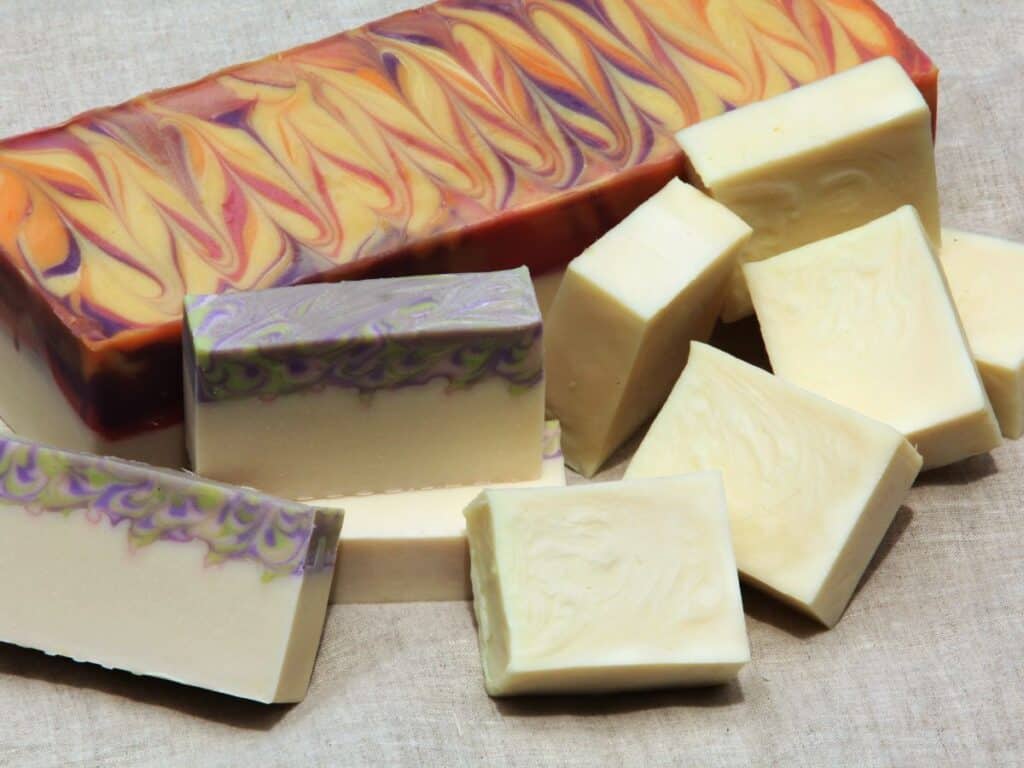
Castile soap owes its name to the Castille region of Spain, where it was originally manufactured from olive oils. While the modern method of manufacture has not changed much, the ingredients have evolved to include other oils.
Examples include coconut oils, hemp oils, castor, avocado, and almond oil, among others. It’s famed for its cleansing power, moisturizing, and mildness to the skin.
How to Make Non-detergent Soap at Home
Some of the soaps we have discussed above are store-bought, while others can be made at home. If you’re a fan of DIY, read on and learn a sweat-free process of making soap in the comfort of your home.
Generally, soap-making falls into two main categories.
Cold Process
The process is so-called because it is self-healing because it involves combining oils with lye resulting in soaps. Due to the vigorous nature of the reaction, it results in rising in temperature. Naturally, this is a slow process, with curing taking up to 6 days to complete.
Hot Process
This is a faster form of soap making where the process is powered by an external heat source to hasten saponification. The minimum time requirement ranges from a day to a week for more effective curing.
For the purpose of this tutorial, we will use the hot process as it is faster and easier to learn compared to the other process.
Making Non-detergent Soaps Using the Hot Process
Before starting, be sure to put on your safety gear; gloves, safety masks, etc.
Next, melt about 20 oz coconut oil in a slow cooker. As the oil melts, separately prepare a solution of 5 oz of lye to 10 oz distilled water and stir slowly. When creating this solution, always add lye to the water and not the reverse for your safety.
This is a hot reaction, so as you stir, do not panic as it is normal. Continue stirring for a minute before letting it settle for 20-25 minutes.
While settling regularly, keep checking the temperature until it reads 55-60 Degrees Celsius. Then gently pour out the lye solution into the coconut oil while slowly stirring with a slow-set immersion blender. If you do not have an immersion blender, you can improvise any tool that is available, for example, a stick.
The blending should go on for about 10 minutes or until the solution looks homogeneous. Thereafter, cover the cooker and continue heating for an hour while opening it once in a while to stir the solution.
After one hour, switch off the cooker and let it cool down to 80 Degrees Celsius, and add your other preferable additives and stir well. Other additives include essential oils, fragrances, colors, etc.
Afterward, you can pour out the soap on a mold, while gently tapping on your working table to allow the bubbles to escape. If the level has gone down, add some more soap and tap it on the table again. Once the content is no longer going down, level it off with a flat item such as a knife.
Finally, you need to cure the soap inside the mold for a period of 24 hours and up to a week. A week or longer is recommended since the soap needs more time to harden and improve in quality.
After curing, the soap is ready to use, and you can cut it into pieces or just remove it from the mold if you had used a single mold.
What Is the Difference Between Soaps and Detergents?
As we found out above, soaps result from natural ingredients reacted with alkalis. In contrast, detergent manufacturing is somewhat different. Instead of the natural fats and oils, the detergents manufacturing process involves the use of synthetics and other inorganic additives.
The additives used include surfactant moisturizers, among others, that give detergent a greater boost in its cleaning power compared to soap. That is why, while soaps react with ions in hard water, detergents break them, boosting their cleaning power.
But this cleaning power comes with its downsides. It makes the detergent harsher, making them unfavorable for use for bathing.
Overall, soaps, while not considered as effective in laundry, they are best for the skin. Moreover, they are considered greener due to their low inorganic chemical load.
Next, you can learn about the 13 laundry detergent alternatives that actually work.
Frequently Asked Questions
What Are the Main Ingredients in Making Non-detergent Soap?
Oil and lye(sodium hydroxide), and distilled water are the main ingredients in the manufacture of soap. In earlier times, manufacturing used animal fats, which changed later to vegetable, coconut oil, grapes seed oil, and cocoa butter, among others.
All these ingredients are passed through a chemical process resulting in glycerols and fatty acids, also known as soaps.
Can Soap Expire?
Most commercially produced soaps have mild preservatives to reduce their expiry. Their freshness is expected to last approximately 3 years in their sealed packing.
In contrast, homemade soaps become rancid, evaporate, or develop molds. Their longest life averages only a few weeks to months.
Is Liquid Non-detergent Soap Better Than Bar Soap?
Both types of soaps have benefits depending on their use. In general, liquid non-detergent soaps are considered of better quality and lather more than bar soaps.
But this is also due to synthetic additives that shift them towards detergent classification than on soaps. Overall, effectiveness aside, bar soaps are considered healthier due to their organic nature.

I’m an expert wardrobe organizer and a bit of a clean freak. I created this website and its YouTube channel to share practical guides about laundry and organizing. My teachings have been featured in multiple large news publications, and I’ve self-published two wardrobe organizing books and an entire course on the subject.



